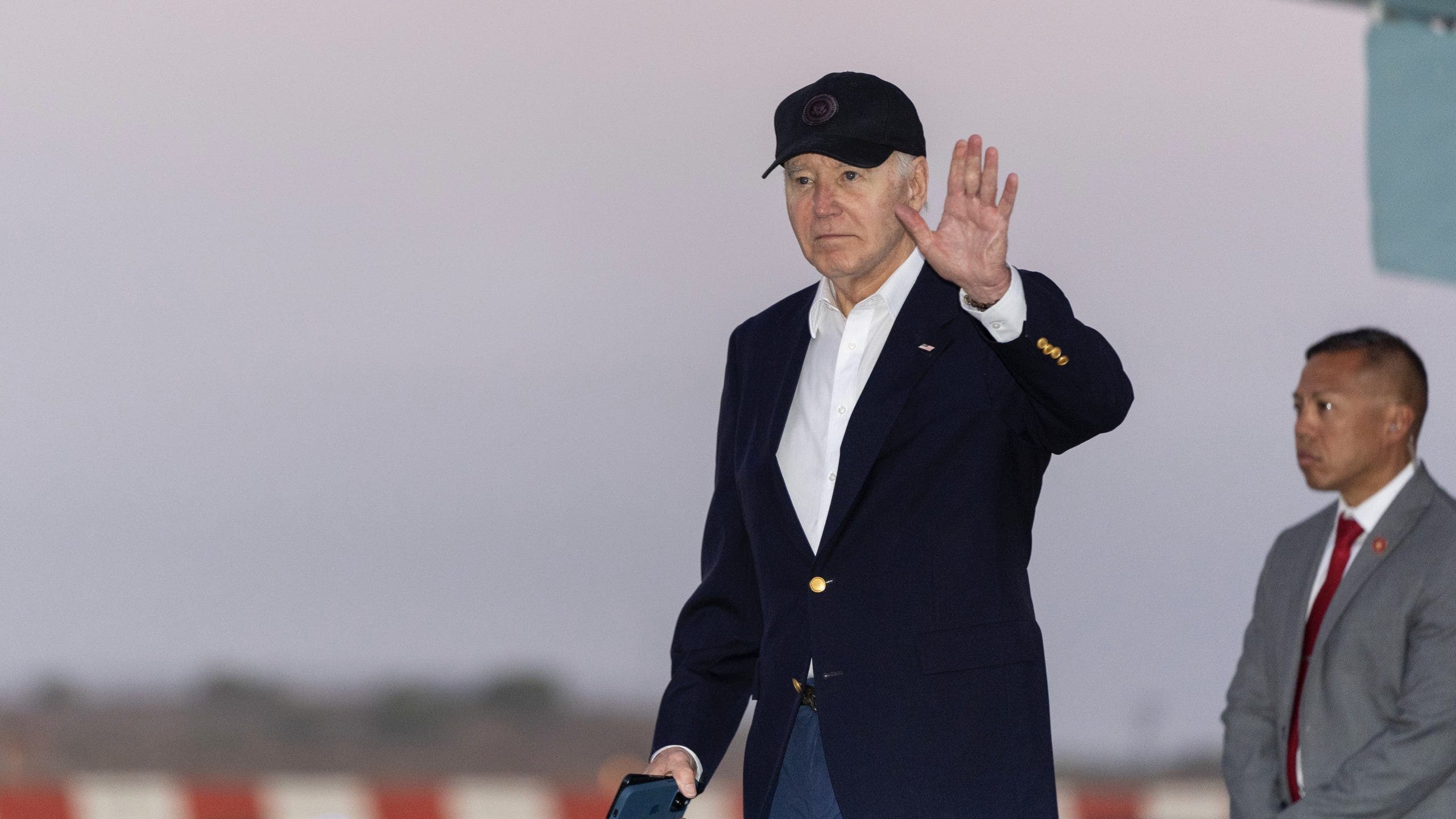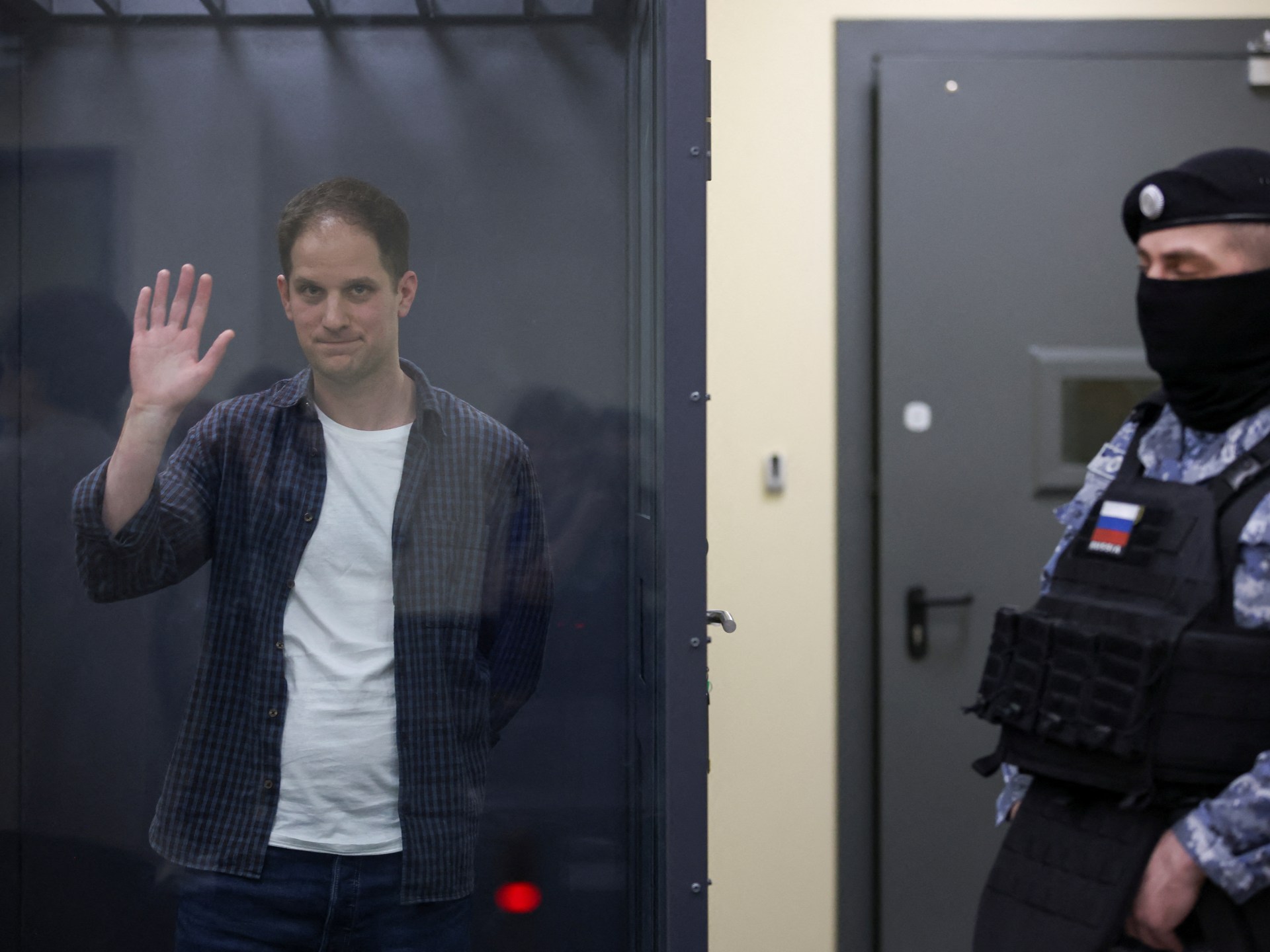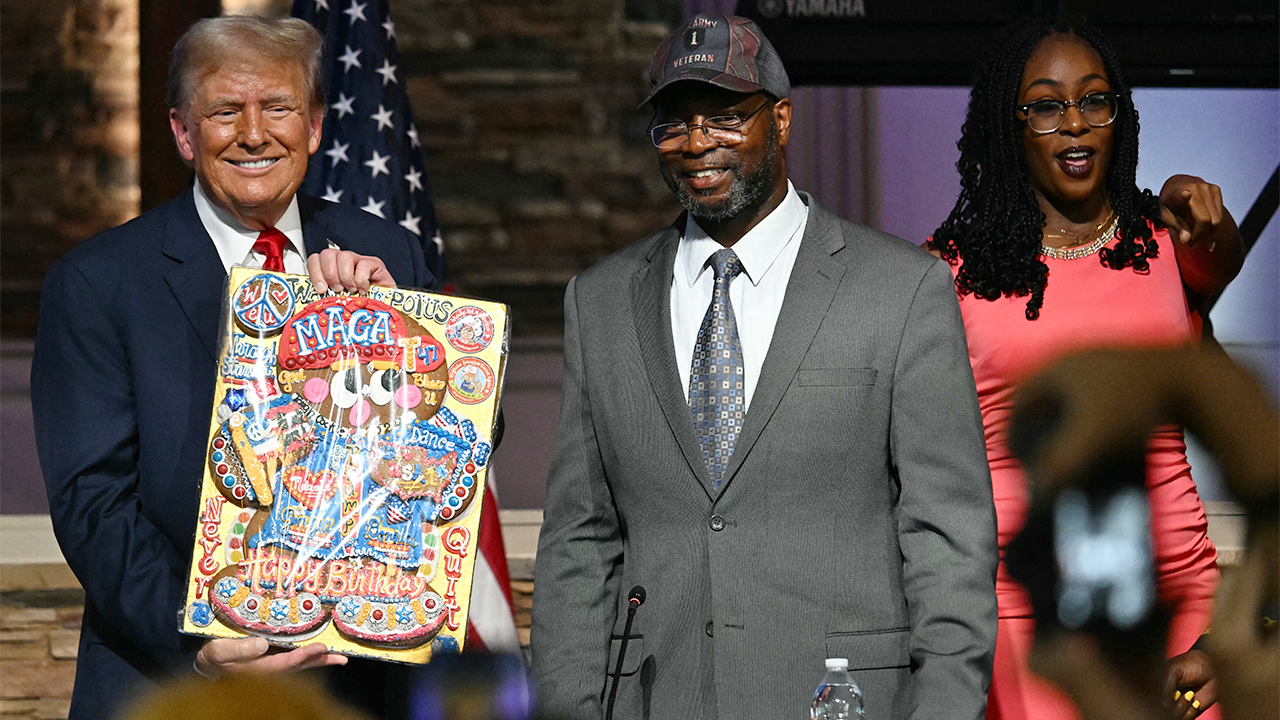Kansas
Kansas would benefit by returning to Trump-era funding of election infrastructure needs
President Joe Biden has so frequently claimed that the return of former President Donald Trump represents an existential threat to democracy that it has become practically his only argument for voters to return him to office.
But a closer examination of how each President actually supported our election system during their respective terms calls this argument into serious question.
During President Trump’s administration, Congress allocated anywhere from $380 million (in FY2018) to $425 million (in FY2020) to meet America’s election infrastructure needs through Help America Vote Act (HAVA) Election Security Grants. Fast forward to the Biden administration, and that level of commitment has dropped precipitously to just $75 million in fiscal years 2022 and 2023.
And this year, the most recent, last-minute budget bill passed by Congress included only $55 million for election security.
But President Biden hasn’t just woefully underfunded programs designed to strengthen the states’ election systems. He has also acted to subvert the entire election system. On March 7, 2021, President Joe Biden directed the agencies of his administration to use federal funds appropriated by Congress for the operation of their agencies to instead “promote voter registration and voter participation.”
And, of course, just coincidentally, that undue influence has been felt disproportionately among demographics that favor President Biden’s reelection in 2024.
The effects of this executive order have already been felt right here in Kansas.
According to left-wing nonprofit organization Vot-ER’s CEO Krista Postai, federal dollars funneled through her organization to FQHCs in southeast Kansas that were used to send 65,000 text messages to influence the 2022 Value Them Both amendment referendum. She proudly concluded in a webinar about their efforts, “As you can see, we had an impact.”
As a Kansas state representative, chair of the House Committee on Elections, and a professor of homeland security at Wichita State University, I have grave concerns about the safety and security challenges facing our dedicated election officials and poll workers.
Particularly in our many rural regions and communities, election offices are lacking some of the most basic resources they need, not only to prepare for and counter the security threats they face but to simply manage the election process efficiently and effectively.
I am even more concerned by President Joe Biden’s unconstitutional effort to divert funds appropriated by Congress to fund healthcare, food benefits and other social programs to put his thumb on the scale and influence the 2024 presidential election.
My concerns only grew last month when the bill we passed to try to stop this inappropriate activity in Kansas, House Bill 2618, was vetoed by Democratic Gov. Laura Kelly.
Election security is national security. The US Department of Homeland Security designated America’s election infrastructure as “critical infrastructure” in 2017. If we expect our hardworking election officers and workers to do their jobs and keep our elections safe and secure, then we need to make sure they have all the tools and resources necessary to do so.
The paltry $55 million that Congress allocated for election security in fiscal 2024, approximately $1 million to each state, is not enough. The way to ensure our election system remains secure is to return to Trump-era funding levels, authorized through the people’s representatives in Congress, and stop the subversion of our electoral processes by an extra-constitutional misappropriation of funds designed to favor one party.
Pat Proctor, R-Leavenworth, was elected to the Kansas House in 2020, where he represents the 41st District as the chairman of the House Elections Committee.

Kansas
Kansas bill offers bonding to cover 75% of cost to build Chiefs, Royals stadiums in Kansas • Kansas Reflector

TOPEKA — Legislation to be presented Monday to Kansas lawmakers to lure the Kansas City Royals or Kansas City Chiefs across the state line would allow issuance of bonds to cover 75% of stadium projects with a minimum capital investment of $1 billion.
The STAR bonds would have a 30-year payback schedule, rather than the 20-year timeline for other state bonded projects. Current STAR bond law in Kansas limited financial support for economic development projects to 50% of the cost.
In addition to state revenue from sports gambling and lottery gaming, sales tax revenue from businesses in the respective sports stadium development districts would be earmarked to cover bond debt. In another unusual move, the bill would allow up to 100% of sales tax revenue on alcoholic liquor sales within a stadium district to be dedicated to paying off bonds.
A 40-page bill outlining details of the incentives was prepared for consideration during the special legislative session called by Gov. Laura Kelly for the purpose of resolving a stalemate on state tax reform. The session formally opens Tuesday, but committees devoted to business and tax issues will convene Monday.
The scramble in Kansas to pull together a bill supporting construction of Kansas stadiums for the Royals or Chiefs followed the April rejection by Jackson County, Missouri, voters of a sales tax measure that would have generated funding for a downtown baseball stadium for the Royals and financed renovations to Arrowhead Stadium where the football team plays. The teams are bound to existing stadium leases through 2031.
Kansas House and Senate commerce committee members are to meet 2:30 p.m. Monday at the Capitol to wade through the stadium bill. The bill draft could be amended by committees in either chamber. Legislative leaders expect the measure to be voted on Tuesday by the full House and Senate and, if approved, sent to the governor.
Missouri Gov. Mike Parson said Missouri would develop a “competitive” offer regarding the professional sports franchises if Kansas stepped forward with a package.
Big lobbying push
An army of lobbyists and other business interests have made informal presentations in recent weeks to any of the 165 Kansas legislators willing to talk about the STAR bond blueprint. Those conversations are expected to continue Monday night among lawmakers invited to a Lawrence steak house to hear from lobbyists, a Royals executive and representatives of organized labor.
Kansas Senate President Ty Masterson, R-Andover, and House Speaker Dan Hawkins, R-Wichita, reached out to owners of the Chiefs to see if they were open to consideration of “mutually beneficial opportunities.”
An organization called Scoop and Score was formed to pitch the border-war idea, but much of that organization’s marketing has been on behalf of a stadium for the Super Bowl champion Chiefs.
“Here in Kansas, we have the unique opportunity to solidify our region as the forever home of the Chiefs at no additional cost to Kansas taxpayers,” Scoop and Score’s social media post says. “We need every Chiefs fan in the state to contact their legislator and urge them to vote to keep the Chiefs in Kansas City.”
Americans for Prosperity in Kansas, however, has campaigned against the STAR bond concept. Legislators with constituents long distances from the Wyandotte County or Johnson County suburbs where the stadiums would likely be constructed have expressed doubts.
Two-stadium solution
The proposed STAR bond bill addressed one financial concern raised by skeptics of the attempt to raid Missouri for the Chiefs or Royals. The bill says bonds for stadium projects issued by the Kansas Development Finance Authority would be obligations of KDFA and “shall not constitute a debt of the state of Kansas within the meaning of … the constitution of the state of Kansas.”
“They are not full faith and credit bonds” and would be “payable solely from the sources identified in the STAR bonds financing act, namely incemental sales tax, alcohol tax and expanded lottery money,” said a briefing document summarizing the bill.
That provision would forbid general tax revenue flowing into the Kansas treasury to be called upon to pay holders of STAR bonds issued for the NFL or MBL stadium projects if one of the sports business districts failed to generate sufficient revenue in the future.
Reports of revenues filed with the Kansas Department of Revenue in connection to STAR bonds for sports stadiums “shall be kept confidential and if unlawfully disclosed would be subject to penalties.”
The bill would make permanent a one-year budget provisio approved by the 2024 Legislature that would dedicate lottery revenue above $71.4 million annually, excluding revenue from sports gambling, to the Attracting Professional Sports to Kansas Fund.
Some fine print
Under the bill prepared for consideration by the Legislature, the secretary of the Kansas Department of Commerce would have authority to enter into a STAR bond agreement with no more than two professional sports franchises. The bill proposed sports business districts would be established by June 30, 2025, but a council comprised top legislative leaders and the governor could extend the deadline for one year.
A final agreement with the Royals or Chiefs would have to be approved by the same bipartisan council of politicians, which is known as the Legislative Coordinating Council. The LCC would possess authority to approve or reject the deals whether the Legislature was in session or not. The agreement wouldn’t be considered a public record until the LCC by majority vote accepted an agreement.
The definition of “major professional sports complex” for purposes of the bill would be a stadium with more than 30,000 seats for holding National Football League and Major League Baseball contests as well as other events.
A memorandum summarizing the bill says franchises eligible for the incentives would be NFL or MLB teams located in “any state adjacent to Kansas.”
The Kansas bill would allow, but not require, local governments to dedicate tax revenue to the sports franchise developments for the Chiefs or Royals.
Kansas
Kansas City Chiefs defensive tackle Isaiah Buggs arrested for domestic violence, burglary

TUSCALOOSA, Ala. (WIAT) — Isaiah Buggs, a defensive lineman for the Kansas City Chiefs, was arrested in Alabama early Sunday.
According to Tuscaloosa Police Public Information Officer Stephanie Taylor, officers were called to a home shortly before 5:30 a.m.
No additional details were provided but Taylor confirmed Buggs, 28, was taken into custody for second-degree domestic violence and second-degree burglary.
He was transported to the Tuscaloosa County Jail to be put on a domestic violence hold. Police previously said the hold was for 12 hours but later confirmed it was set at 24 hours. Buggs was eventually released on a $5,000 bond.
According to the Associated Press, the Chiefs were aware of the case but declined to comment.
This is the second time in a month that Buggs has faced charges.
In May, Buggs was charged with two counts of second-degree animal cruelty after two dogs were allegedly found starving and dirty on the back porch of a property he had been renting in Tuscaloosa.
According to police, a neighbor reported seeing two dogs that were “surrounded by feces” on March 28 with no access to food or water, in addition to being out there for 10 days. One of the dogs has since been euthanized while another is being treated for Parvo.
Buggs turned himself into the Tuscaloosa County Jail a day after arrest warrants were issued in that case. His bond was set at $600 — $300 for each charge. He later posted bond and was released from jail.
Buggs signed a $1,292,500 contract with Kansas City for the upcoming season.
Buggs played for Alabama in college before being signed by the Pittsburgh Steelers. After three seasons with Pittsburgh, Buggs play two seasons for the Detroit Lions. The Chiefs picked him up last year and planned to use him to shore up the middle of their line. But that was before they reached a long-term deal with All-Pro tackle Chris Jones and signed Derrick Nnadi and Tershawn Wharton, both of whom were hitting free agency.
The Chiefs have had to deal with a series of off-the-field legal issues since beating the San Francisco 49ers in February.
Wide receiver Rashee Rice faces eight felony charges from a high-speed crash in Dallas, and offensive linemen Chukwuebuka Godrick and Wanya Morris were arrested last month in Johnson County, Kansas, on a misdemeanor possession of marijuana.
The Associated Press contributed to this report.
Kansas
Kansas Earns “Gold Shovel” Award Again
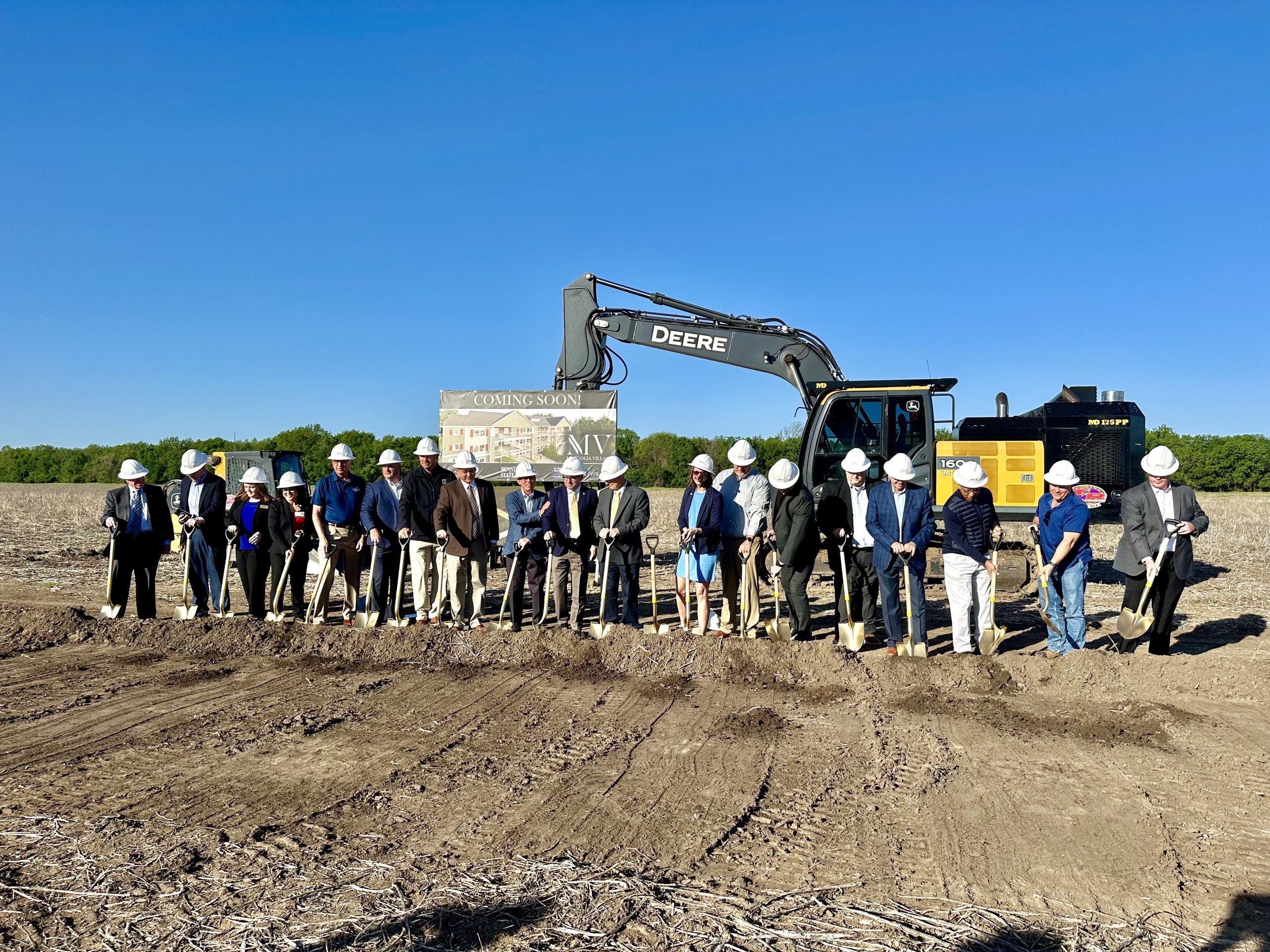
Kansas has garnered Area Development magazine’s Gold Shovel Award for the fourth year in a row.
According to Governor Laura Kelly’s Office, the latest accolade is without precedent in state history.
“Earning a fourth Gold Shovel underscores the work my administration is doing to attract business investment and increase job opportunities to continue making Kansas the best place to live, work, and raise a family,” Governor Laura Kelly said. “The influx of jobs in every corner of the state is providing the possibilities for young Kansans to start or expand their careers right here at home.”
Since the start of 2019, Kansas has created 1,180 new economic development projects worth more than $19 billion in private sector investment and created and retained more than 67,000 jobs statewide.
Kansas was recognized for its achievement in attracting high-value investment projects that will create a significant number of new jobs throughout the state. In 2023, there were 255 projects totaling almost $3.1 billion in private sector investment and nearly 12,000 jobs created or retained. The single largest project was Building Materials Manufacturing Corporation’s $350 million facility in Newton.
“After years of decline — and Kansans fleeing to other states in search of economic opportunity — the Kelly-Toland Administration has Kansas back on a path of growth,” Lieutenant Governor and Secretary of Commerce David Toland said. “Kansans in every region of our state deserved greater opportunities, and we needed a strategic plan to breathe life back into our communities. This fourth consecutive Gold Shovel is proof that our plan, the Kansas Framework for Growth, is working. Kansas has jumped from the middle of the pack to the top of the heap, establishing a new normal as a nationally recognized economic powerhouse. We will continue to work tirelessly to ensure an even brighter future.”
The Framework for Growth, developed in partnership with communities, businesses, education institutions, and economic development stakeholders, focuses on five target sectors:
- Advanced Manufacturing
- Aerospace
- Distribution, Logistics and Transportation
- Food and Agriculture
- Professional and Technical Services
These target sectors emphasize Commerce’s focused, purposeful approach to economic development. Ninety percent of the business successes announced during the Kelly-Toland administration came from one of the target sectors.
Area Development Magazine is a publication for economic development executives involved with corporate site selection and relocation. Five states were awarded the prestigious Gold Shovel in their respective population categories, with Kansas leading the list of the states with fewer than 3 million residents.
The top 10 projects from 2023:
| Company | Location | Investment | Jobs |
| Building Materials Manufacturing | Newton | $350 million | 137 |
| Walmart | Olathe | $257 million | 667 |
| High Plains Ponderosa Dairy | Plains | $168 million | 95 |
| Kiewit Corp. | Lenexa | $120 million | 723 |
| Camso Manufacturing | Junction City | $113 million | 181 |
| H&T Kansas | De Soto | $110 million | 180 |
| Koch Fertilizer | Dodge City | $93 million | – |
| Marvin Lumber and Cedar Co. | Kansas City | $76 million | 585 |
| Oppidan | Olathe | $70 million | 6 |
| Southwest Plains Dairy | Syracuse | $54 million | 45 |
-

 News1 week ago
News1 week agoWould President Biden’s asylum restrictions work? It’s a short-term fix, analysts say
-

 Politics1 week ago
Politics1 week agoNewson, Dem leaders try to negotiate Prop 47 reform off California ballots, as GOP wants to let voters decide
-

 World1 week ago
World1 week agoDozens killed near Sudan’s capital as UN warns of soaring displacement
-

 News1 week ago
News1 week agoRead Justice Clarence Thomas’s Financial Disclosures for 2023
-

 World1 week ago
World1 week ago‘Bloody policies’: Bodies of 11 refugees and migrants recovered off Libya
-

 Politics1 week ago
Politics1 week agoGun group vows to 'defend' Trump's concealed carry license after conviction
-

 Politics1 week ago
Politics1 week agoShould Trump have confidence in his lawyers? Legal experts weigh in
-
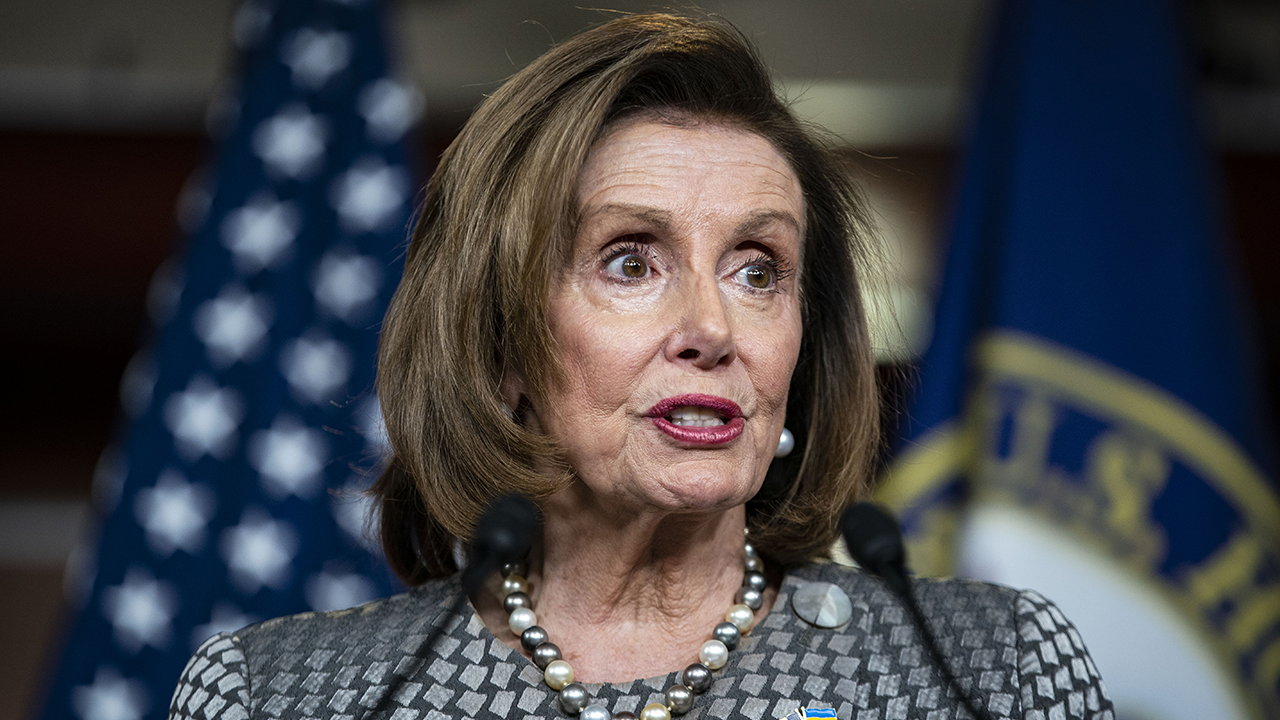
 Politics6 days ago
Politics6 days agoGOP releases Jan. 6 clip of Pelosi saying 'I take responsibility' as she discussed National Guard absence













